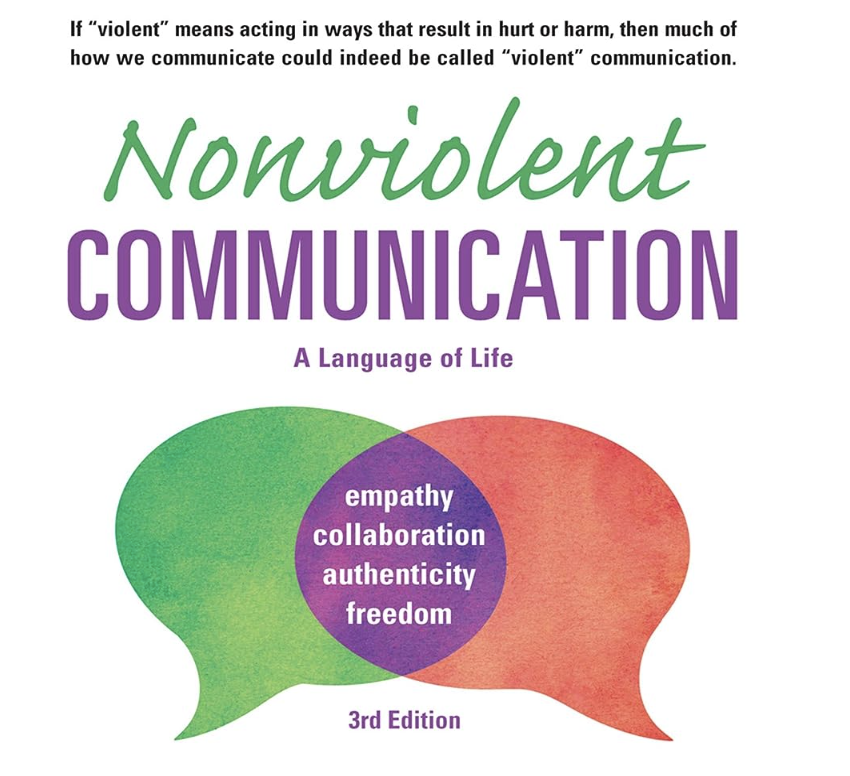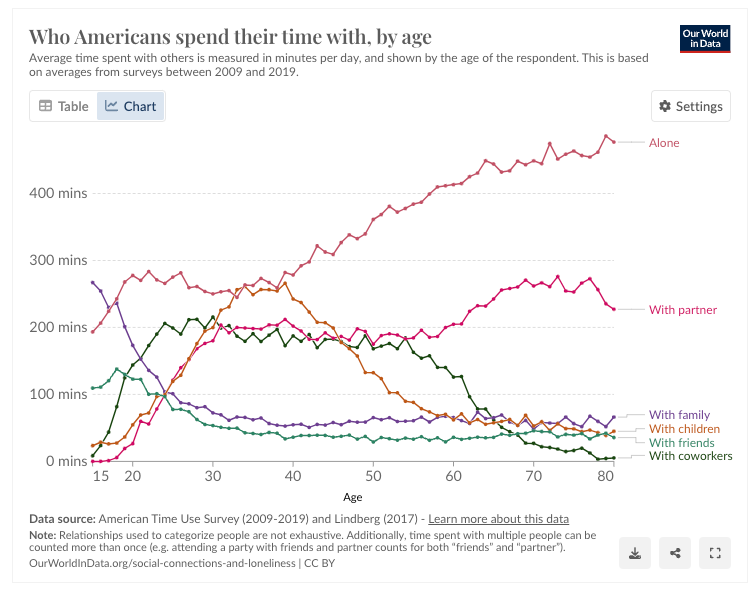Nonviolent communication

“At the core of all anger is a need that is not being fulfilled.” ― Marshall B. Rosenberg
Nonviolent communication by Marshall B. Rosenberg
Date read: 1st Feb 2022
How strongly I recommend it: 10/10
Read more on Amazon.
High level thoughts
This has easily been the book that I have gained the most value from in 2022 out of approximately 60 books. I'm not exaggerating when I say it has saved me a lot of potentially gruesome arguments with my fiancé and turned them magically into discussions about how we can both try our best to meet the other person's needs while meeting our own. I say magically as though it prevents any arguments which isn't the case but this is a style of communication I really wish I had found earlier in my life and could have saved me a lot of wasted time miscommunicating in an ineffective way. After reading this book and then using the techniques outlined here it felt like the biggest power up in the world when discussing anything that was causing friction with my life co-pilot. Some amazing life hack that I wish someone had told me about earlier. So here are my main takeaways from this book and how it has added value to my life.
Communicate not in terms of judgments but in terms of your needs
When we are having a discussion and we get worked up and emotional about what we are saying our monkey brains can take over and overwhelm our thoughts with anger or certain needs that aren't being met. It's so easy when stressed, tired or frustrated to lose control of yourself and want to express the pent up anger that you have built up. I certainly am significantly more likely to get angry with anyone in my life, particularly my fiance who I happen to spend the most time outside of work with. Naval Ravikant has a fantastic insight into anger:
"Observe when you’re angry — anger is a loss of control over the situation. Anger is a contract you make with yourself to be in physical and mental and emotional turmoil until reality changes."
I don’t believe in anger anymore. Anger was good when I was young and full of testosterone, but now I like the Buddhist saying, “ Anger is a hot coal you hold in your hand while waiting to throw it at somebody. ” I don’t want to be angry , and I don’t want to be around angry people. I just cut them out of my life. I’m not judging them. I went through a lot of anger too. They have to work through it on their own. Go be angry at someone else, somewhere else."
But importantly, you are angry because you have a need that is not being met.Think of the number of arguments between partners that are essentially one person shouting at another in angry tones that their needs aren't being met. In fact all arguments and all anger, at the core, has a need that you have that isn't being met. Usually the thinking process behind this behaviour is outrageously shallow, you don't have a certain need being met and you are frustrated with that and expressing that frustration with anger. Most of the time when you are angry in the moment, if you just waited 30 seconds to respond you almost all of that anger would disappear. The funny thing about your needs and ensuring that they are met, is that other people generally want to help us to meet our needs in life. For example if you are angry with your partner for not doing a task (let's say taking the bins out) you can get frustrated and explode by saying "All I asked you to do was this one thing and you couldn't manage that!?!?" in aggressive tones. Alternatively you can communicate with them by saying "I have a need for the house to be clean and by not taking the bins out, you're not meeting that need, if you could try to stick doing that task in the future that would help to meet my needs a lot more." Being on the receiving end of the second way of communicating helps you empathise with the communicator since you see what needs they aren't having met and you generally want to help them meet their needs in life, also it means you don't get defensive about your actions, you can see what needs to be done to help clearly.
One other point I wanted to make about this was that communicating in this style can actually be quite energy intensive, when you are tired and upset about something the easy thing to do it feel the direct emotion you have and let your monkey brain short circuit your thinking, you can't think about anything other than the anger your are experiencing and let it out in whatever way you can. It takes practice to communicate this way if you often let your anger take control of your interactions (I have previously been and remain at times, guilty of this vice). Communicating nonviolently is like a muscle, the more you flex it the stronger it becomes.
The point of nonviolent communication is to get everyone's needs met compassionately, not controlling the behaviour of others. In the previous example used with taking the bins out, if the person who was asked to do it had something come up at work last minute, they could tell their partner that in a non-violent fashion, communicating in terms of needs “I have a need to do well at work and something came up, I can see how we need to have the house tidy but I also need to succeed at work". Normally when you have friction with someone it will be because you have actions that aren't meeting both of your needs, if actions need to change to meet one need over another then you communicate in terms of which need do you both think is more urgent to develop and compromise based on that.
We shouldn't aim to control people by punishment or extrinsic rewards,we should do stuff for others because intrinsically want to make others lives better. But while doing all of this it's important to not give up on what you want either.
Be specific and separate observation and evaluation
When you are specific in your communication, you provide clear and concrete information about what you are observing, feeling, or needing. Specificity helps to avoid ambiguity and misinterpretation. It allows the other person to understand your message more clearly. For example, instead of saying, "You never listen to me," you can be specific and say, "When I was talking about my day, I noticed that you were looking at your phone, and I felt unheard."
When angry, it is very tempting to present an evaluation or exaggeration of someone else's behaviour, "you always talk too much" "you always undermine me" "you always ignore me". Generalisations and evaluations of other's behaviour are not helpful if you want to see change on the other end of the negotiation table. To get the best response, be specific and separate observation and evaluation. Follow this with how this specific action can be changed to meet your needs. For example, maybe someone has a colleague that talks over them in meetings and they want an opportunity to speak. Instead of "you always talk too much in meetings and other people want to talk" it can be phrased as "the last 3 meetings you presented 5 anecdotes that made the meeting extend by 15 minutes more than planned, we have a need to speak at meetings too and if there were more chances for that we would have more opportunities to". There's a specific observation, no evaluation and a specific way that it can change to meet someone's needs.
Separating the two allows for a more objective and non-judgmental conversation. When evaluations are kept separate, it's easier to express our feelings and needs without making the other person defensive. This opens the door to empathy and understanding.
Summary
I'm not exaggerating when I say that this is the most useful tool I have ever used when communicating with my financé and communicating a lot with my financé. I'm also likely to spend a lot more time communicating with my partner in the future based on the graph below. It has reduced the number of intense arguments I have with my financé by about 60-70% and improved the way I discuss issues with her overall probably by about 10-15%. That's pretty high value.

